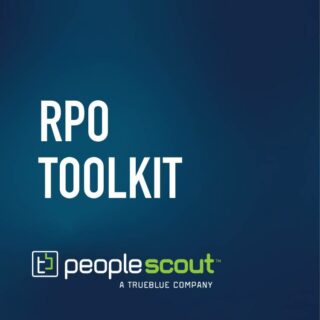For organisations looking to fill the gap left by retiring Baby Boomers, recruiting and hiring talent from universities is a significant first step. In this post, we examine some of the best practices and strategies for attracting, recruiting and hiring recent graduates.
The Benefits of Recruiting Recent Graduates
Most recent graduates do not have years of experience. However, what recent graduates lack in professional experience can be made up elsewhere. Many students participated in volunteer activities, performed leadership roles in student government or clubs and completed internships, all of which can help develop critical workplace skills. From technical aptitude to adaptability, recent grads have characteristics that can be additions to an organisation. Below, we list some of the main benefits of hiring recent graduates.
Recent Graduates are Ambitious and Enthusiastic
After graduation, many students are eager to begin their professional careers; they want to make a good impression, and they want to succeed. A sense of gratitude may also accompany a new hire’s desire to do well in their role. This can lead to a strong commitment to the job from the beginning, not to mention enthusiasm to learn, succeed and make leadership proud.
Recent Graduates are Tech-Savvy
Recent graduates have more than likely spent time learning and mastering new technologies, making their ability to navigate technology capabilities and functionalities second nature. What’s more, according to an Accenture Strategy Survey, nearly three-quarters of Generation Z graduates have taken digital, coding or computer science-related courses in college. These skills can give newly hired graduates the opportunity to share their knowledge across an organisation.
Greater Diversity Outcomes
With graduating classes becoming more and more diverse, organisations have a prime opportunity to recruit talent from all walks of life. Pew Research projects that both colleges and workplaces can expect to see diversity numbers climb, with the class of 2025 expected to be the most diverse in history. Embracing diversity and incorporating it into overall corporate culture has many benefits. According to a survey conducted by McKinsey and Company, businesses with a diverse workforce are 35 percent more likely to have financial returns above industry averages.
Long-Term Talent Development
Hiring graduates with a focus on developing their skills affords organisations the opportunity to recruit the leaders of the future. Organisations can groom recent graduates and equip them with the knowledge and skills needed for leadership. By thinking about the long-term needs of the organisation, hiring managers can proactively fill forecasted skill, workforce and leadership gaps with fresh, ready-to-learn talent.
Sourcing Strategies for Graduate Recruitment
When recruiting recent graduates, organisations need a strong presence where they work, live and go to school, and on the platforms and technologies they use the most. The majority of today’s job seekers are Millennial and Gen Z graduates. To reach young talent, it’s critical for organisations to connect with them in the ways they can relate to – namely through technology. Below we list digital sourcing strategies for recruiting the best talent among recent graduates.
Social Media
Social media’s ubiquitous nature makes it one of the most effective recruiting tools for Generation Z and Millennials. To reach a large pool of recent college graduates, organisations should establish recruiting-focused Twitter, LinkedIn and Facebook pages that highlight entry–level jobs. Social media recruiting tips include:
- Organisations should utilize Facebook’s Graph Search option to find graduates with the specific skills and educational background they are looking for in candidates.
- On LinkedIn, organisations should use keywords relevant to open entry-level positions to attract the right candidates as well as posting jobs in alumni groups and university pages.
- Although Twitter only permits 280 characters in posts, organisations can add videos about their company and photos to gain the attention of recent graduate candidates.
Mobile Recruiting
Mobile recruiting is growing in popularity as more and more applicants initiate their job searches on their mobile devices. What’s more, 86 percent of recent graduates feel positive about text messages being used in the hiring process. Organisations can use SMS messages to alert candidates of new opportunities and coordinate interviews. While sending job opportunities via text can be valuable, organisations should be careful not to overdo it. Mobile-first talent technology like PeopleScout’s Affinixtm can help organisations leverage mobile recruiting tools to attract candidates to entry-level positions.
Graduate Career Page
Members of Generation Z are always online, so investing in a well-designed, content-rich career page for students to learn about job openings is well worth the effort. If possible, organisations should personalise a graduate career page to highlight alumni hires, experiences of recent graduates and employer messaging tailored to engage potential hires. Graduate career pages should be optimised for search engines and contain relevant keywords so job seekers can easily find it. Links to the page should also be included in communications with prospective candidates.
Building and Maintaining Campus Relationships
Establishing strong relationships with universities is a key element to successful campus recruiting.
To start, organisations should reach out to a university’s career center. When communicating with the career center’s team, focus on communicating what your organisation can do for the university. Once a relationship is established with the career center, organisations should leverage that connection to start nurturing relationships with faculty.
Organisations should become active in different campus activities, even if those activities are not directly associated with recruiting. For example, organisations can identify student groups related to their industry and offer sponsorship programs for activities and events. This is a great way to create a positive brand image on campus. Below, are other strategies for building relationships with universities and students:
- Organisations should participate in networking events hosted by the university to get to know potential candidates, faculty members and administrators who can help in campus recruiting efforts.
- Sponsoring academic conferences and events on campus is a good way to illustrate that an organisation is a committed partner in supporting the educational mission of the university.
- To boost their profile on campus and connect better with faculty, organisations should enlist the help of campus ambassadors, former employees who attended that university.
- Organisations should offer university staff and students on-site visits to their offices to share their company culture and give students a real-world view of the workplace.
Engaging Students at Campus Career Fairs
University job fairs have been a mainstay of on-campus recruiting for years. To make the most of career fairs, organisations should carefully tailor their approach. In this section, we outline ways organisations can better engage students at campus career fairs.
Bring the A-Team
Companies should bring employees who will best reflect the experiences and values most important to students. Often, these individuals will be recent graduates, members of the leadership team or employees currently holding positions candidates may be particularly interested in.
When selecting a team, identify employees who have a passion for what they do and an interest in building relationships with students. Also, organisations should be sure to have a diverse range of culture, ethnicities, age, and gender reflected in the recruiters at their booth.
Follow Up
After the career fair has wrapped up, organisations need to quickly follow up with interested candidates to refresh their memories and keep the organisation “top-of-mind” as a future potential employer. Tips for post-career fair follow up include:
- Collect as much information from students as possible and use that information to send targeted emails. For example, you could notify them of upcoming hiring events in their area.
- Provide candidates with specific, tangible options for engaging with your organisation after the career fair, such as the contact information of employees they met with at the fair, links to career pages and invitations to in-house meet and greets.
Timely, professional and tailored correspondence to candidates immediately after a career fair can help improve employer branding.
Outsource University Recruiting
When recruiting recent graduates, organisations can leverage the technology of outside resources to maximize their reach and improve recruiting outcomes. From sourcing and screening to interviewing and hiring recent graduates, a Recruitment Process Outsourcing partner can effectively deploy technology to assist organisations with campus talent acquisition.
As the business landscape becomes more complicated and organisations look to adapt to changes, hiring young forward-thinking graduates will continue to be important for remaining competitive. Implementing an RPO solution to help recruit students can imbue an organisation with expertise, tools and technologies to create the talent pipeline needed to find tomorrow’s talent today.




